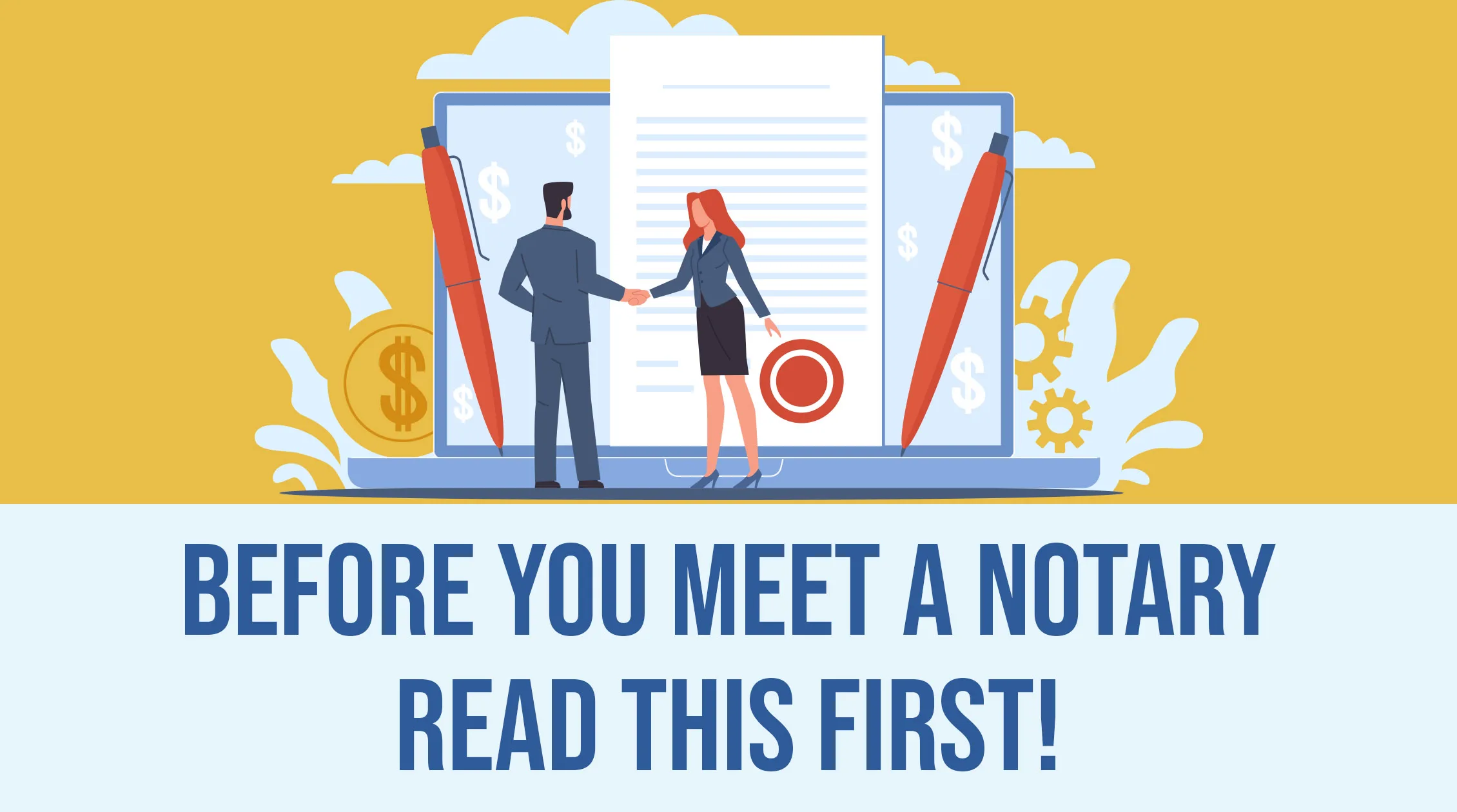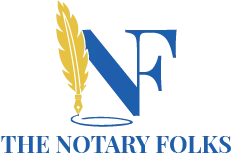
Getting ready for a notary appointment might seem like a simple task, but a little preparation can save you time, frustration, and even a return trip. Whether you’re finalizing legal documents, closing on a new home, or signing a power of attorney, making sure you have the right paperwork and identification is key to a smooth notarization process.
Not sure where to start? No worries! This step-by-step guide will walk you through everything you need to do before your notary appointment—so you can show up prepared and leave with peace of mind. Let’s dive in!
What Is a Notary and Why Do You Need One?
A notary public is a trained official who checks identities and watches people sign important documents to make sure everything is legal and fraud-free. You might need a notary for:
- Legal papers like wills or power of attorney
- Buying or selling a house
- Loan agreements or contracts
- Business paperwork
- Government forms that require a certified signature
- School permission slips, parental consent forms, and adoption papers
- International documents requiring verification
If your document needs an official signature check, a notary can help! Notaries make sure people sign willingly and understand what they’re signing. They also keep records to prevent fraud. Some transactions, especially those involving large sums of money or legal authority, require notarization to be legally valid.
Steps to Prepare for Your Notary Appointment
Step 1: Pick the Right Type of Notary Service
You can choose from three main types of notary services:
- In-Person Notary: Available at banks, law firms, or shipping centers. Some banks offer free notary services for their customers.
- Mobile Notary: The notary comes to your home, office, or another location that works for you. This is helpful for people who can’t travel easily or have busy schedules.
- Online Notary (Remote Online Notarization – RON): A digital process that lets you sign and notarize documents over a video call. This is legal in many states and can be more convenient than visiting an office.
Benefits of Each Option
- In-person notarization is the most traditional and widely accepted method.
- Mobile notaries add flexibility for individuals with mobility challenges or complex scheduling needs.
- Online notary services allow quick, remote processing without the need to leave home.
Tip: Make sure the notary is certified and licensed in your state before setting up an appointment. Some documents need special notarization, so check ahead of time.
Step 2: Gather the Right Documents
Having your paperwork ready before the appointment will help avoid delays.
Checklist of What to Bring:
- The document(s) that need notarization
- Any required attachments or supporting paperwork
- Make sure all blanks are filled in, but do not sign the document yet!
- A list of questions for the notary (if you need clarification, but they can’t give legal advice)
- Any extra forms that a bank or company may need
- Proof of relationship if signing on behalf of someone else (e.g., power of attorney)
Common Mistakes to Avoid
- Leaving required fields blank
- Bringing outdated or incorrect documents
- Not verifying if witnesses are needed
Tip: If your document needs witnesses, confirm they are available before the appointment. Some states have specific rules about who can be a witness. Montana residents can check the state law here.
Step 3: Bring Proper ID
Notaries must confirm your identity before signing off on documents. You’ll need one of these IDs:
- Driver’s license
- State ID
- Passport
- Military ID
- Green Card (Permanent Resident Card)
- Some states allow employee or student IDs, so check your local rules
- Birth certificates or social security cards (only in specific situations)
If you don’t have a valid ID, some states allow you to bring two people with valid IDs who can vouch for your identity. These witnesses must not be part of the document.
Step 4: Understand When to Sign the Document
Do not sign your document before the appointment. The notary must watch you sign it.
During the appointment, the notary will:
- Make sure you understand the document
- Check for fraud or pressure
- Record details in their notary journal
- Give an oath or affirmation if needed
What Happens If You Sign Early?
- Some notaries may require you to redo the document.
- The notarization may be considered invalid.
- The receiving party (such as a bank or court) may reject it.
Tip: If you’re signing on behalf of someone else (like for a power of attorney), bring proof of your authorization. If multiple people need to sign, make sure they are all present.
Step 5: Know the Notary Fees
The cost of notarization depends on your state and the type of service you choose:
- Standard Notary Fee: Usually $5–$15 per signature, but this varies by state
- Mobile Notary Fee: Extra charges for travel time and location
- Online Notary Fee: Typically $25–$50 for virtual notarization
- Additional Fees: Some notaries charge for extra copies, expedited services, or after-hours appointments
Before your appointment:
- Confirm the notary’s fees
- Ask what payment types are accepted (some only take cash)
- Check if your document requires extra fees for multiple signatures
Common Questions About Notary Appointments
Some states allow two witnesses with valid IDs to confirm who you are. Always check state laws before your appointment.
Yes, a notary can refuse if they suspect fraud, coercion, or if the document is incomplete.
Usually about 15–30 minutes, depending on how many signatures and documents are needed.
Most states require witnesses to be neutral third parties, meaning they cannot be related to you or benefit from the document.
Some places allow walk-ins, but it’s best to check with the notary beforehand. Mobile and online notaries usually require an appointment.
Final Thoughts
Getting ready for a notary appointment doesn’t have to be stressful. If you have the right documents, a valid ID, and know the fees, the process will be quick and easy. If you’re unsure about anything, ask the notary ahead of time. A well-prepared notarization makes your documents legal and keeps everything official.
Extra Tips for a Smooth Experience
- Arrive on time and bring all required documents.
- Double-check that your name matches your ID exactly.
- If using an online notary, test your camera and microphone beforehand.
By following these steps, you can ensure your notary appointment goes smoothly and efficiently.
Schedule Your Notary Service Today!
At The Notary Folks, we provide reliable mobile and remote online notarization services to ensure your documents are handled with care and professionalism. Whether you need a real estate transaction, loan signing, power of attorney, or any other notarized document, our experienced notaries are here to help.
Let us bring trust, convenience, and expertise right to your doorstep. Book your appointment below and get your documents notarized with confidence!


